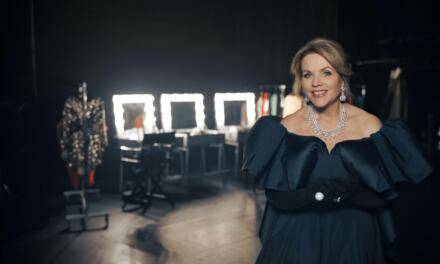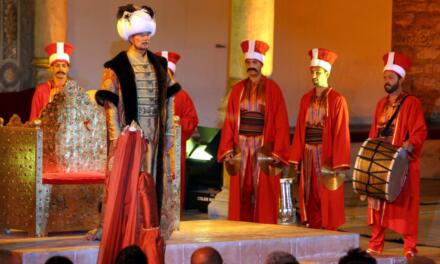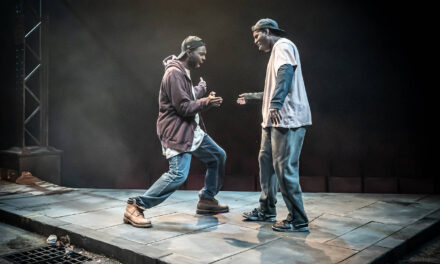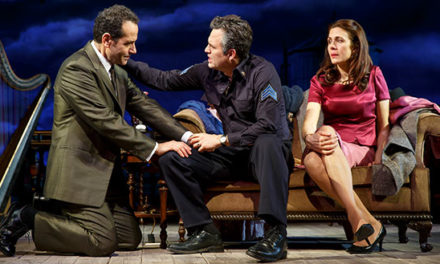The Literary Managers and Dramaturgs of the Americas (LMDA) convened the last week of June 2014 at Emerson College in Boston, MA for the organization’s annual conference. Following this year’s theme of “Building the Future,” the conference’s panels, discussions and workshops focused on the innovative networks currently changing how modern theater artists build and share work.
Despite its title, LMDA draws participants from a wide range of places and professions. Visitors from Spain, Israel, Poland, Australia and the UK joined attendees from the US and Canada for the four-day conference, while hundreds of others watched sessions online via HowlRound TV. In addition to individuals with “dramaturg” as their official job title, participants included scholars, producers, playwrights, performers and journalists. Panels covered a range of topics, including translation, devised performance dramaturgy, the future of MFA programs, performance law and dramaturgical publishing.
For conference chair Magda Romanska (Emerson/Boston Lyric Opera), the inter-disciplinary and international nature of LMDA’s membership represents a key resource for building the theater of the future. The conference programming highlighted the 21st century theater’s potential to become a site for the formation of connections on both the local and global levels. The conference’s three plenary sessions urged dramaturgs, with their joint institutional and aesthetic focus, to lead explorations of new possibilities for performance and partnership.
The conference showcased a multitude of new-age resources for theatrical connection-building. One session, led by Romanska, showcased new digital resources enabling communication and partnership between theater institutions and practitioners across the world. Caden Manson and Jemma Nelson shared contemporaryperformance.org, a 6,000-member global network which aims to connect scholars, performers and theaters for collaboration and research. On the same panel, Ken Cerniglia of Disney Theatricals shared the scholarly database American Theatre Archive Project, and Anna Galas of the Polish Theatre Institute showed the comprehensive database of Polish theatrical data at e-teatr.pl. They were joined virtual by NITEnews’ Beatriz Cabur in Madrid, who shared the site’s plans for expansion and collaboration.
 Hoping to reinvent a core dramaturgical activity with new technology, Jojo Ruf and Gwydion Suilebhan of the National New Play Network unveiled the NNPN’s New Play Exchange . Years in development and backed by a grant from the Doris Duke Foundation, the site aims to re-engineer the new script production process from the top down by creating a digital commons where playwrights, dramaturgs and theaters can connect directly, and share digital versions of plays looking for production. With plans to open in 2015, the website is currently in beta testing.
Hoping to reinvent a core dramaturgical activity with new technology, Jojo Ruf and Gwydion Suilebhan of the National New Play Network unveiled the NNPN’s New Play Exchange . Years in development and backed by a grant from the Doris Duke Foundation, the site aims to re-engineer the new script production process from the top down by creating a digital commons where playwrights, dramaturgs and theaters can connect directly, and share digital versions of plays looking for production. With plans to open in 2015, the website is currently in beta testing.
Other panels showcased the increasing intersections between dramaturgical practice and digital media. At a “New Media Dramaturgy” discussion session, video game designers discussed their industry’s turn to traditional dramatic wisdom to produce richer environments and characters, and at a “Wikipedia Edit-A-Thon,” conference participants worked to “unclog the pipeline,” creating and expanding Wikipedia entries for under-represented women playwrights.
In addition to showcasing these geography-defying digital connections, the conference honored local excellence. Ilana Brownstein, Founding Director of Playwrights’ Commons and the Director of New Work of Boston’s Company One, was presented with the Elliot Hayes Award for Outstanding Achievement in Dramaturgy. In breaks between panels, participants also participated in tours of Boston’s historic theater district, Fenway Park and area theaters including the Huntington and the American Repertory Theater.
The conference gathered distinguished regional voices to comment on these advances. In the keynote address, Pulitzer Prize-winning film critic and longtime writer for the Boston Globe, Wesley Morris commented on the possibility presented by new media, especially video streaming, to perform narratives not common on mainstream stages or in big-budget films. In a conversation with the general membership, Anne Cattaneo of New York’s Lincoln Center and Polly Carl of HowlRound debated the legacy of regional not-for-profits in the US, and the types of theater that will successfully take their place, as funding structures established in the 70’s and 80’s prove untenable today.
Founded to facilitate this type of conversation between dramaturgs across the Americas, LMDA closed this year’s conference after a total of 21 panels and discussions. It continues these conversations during the year through its own digital networks, namely its listserv and its newsletter. Moving down the East Coast, next year’s conference will take place in New York, under the leadership of newly-elected LMDA president Beth Blickers (Abrams Artists Agency).
Click here for more information about LMDA. For video of the conference’s plenary sessions, Keynote Address, and a conversation between Center’s Anne Cattaneo and Polly Carl, visit HowlRound TV.
This post was written by the author in their personal capacity.The opinions expressed in this article are the author’s own and do not reflect the view of The Theatre Times, their staff or collaborators.
This post was written by Robert Duffley.
The views expressed here belong to the author and do not necessarily reflect our views and opinions.


















